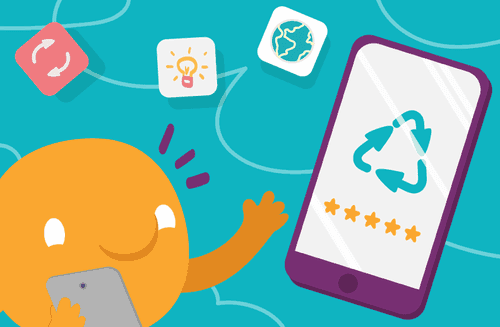
06/05/2022
Innovation Strategies for the Circular Economy
What are the strategies to be adopted to move away from a current economic model in which resources are not reused and to reach at an alternative model, based on the Earth's cyclical process in which nothing is thrown away and everything becomes a resource?
To achieve the goals of the Circular Economy, it is necessary to overcome the challenge of creating more sustainable products and ideas that also involve most people on the planet. This is explained by Professor and researcher in Circular Economics Daniel Guzzo, new Educational Ambassador for the Circular Movement.
The importance of innovation for the Circular Economy
If an alternative economy to the current model is really to be the future of the planet, replacing the current linear and unsustainable model, new technological solutions need to be combined with behavioral and value solutions. According to Guzzo, innovation is very important when thinking about new initiatives and ways to use resources.
However, concepts are often created that do not advance and do not emerge from the initial and reduced niches in which they were created, thus hindering the transition from a linear to a circular society.
"We're at a point where we don't scale the concepts that we're developing, we make the entire innovation journey come to big business and get out of the niche, and it reaches most people, or we won't be fast enough for the time we need to make the change," stresses the Circular Economy researcher.
Initiatives for a Circular Economy
The professor highlights that some initiatives with varying degrees of maturity are underway that help to reach a future in which most practices will be circular. These initiatives take place in the most diverse sectors of the world and also in Brazil.
An example of business-driven circularity is what Dutch company Fairphone is doing with the design of modular cellphones, where there is the possibility to exchange some components when necessary so that the whole device is not replaced. Fairphone is a company that has developed a new model for the mobile phone. In Brazil there is an application called Catakí, which aims to connect people who have recyclable materials with city pickers, ensuring ecological disposal and making a difference in the lives of workers.
An example of circularity driven by the public initiative is the Projeto Ligue os Pontos (Connect the Dots Project), which seeks to strengthen agriculture in the rural area of the city of São Paulo by connecting local producers from all corners of the city to boost local food production.
What do people want and how are they willing to behave?
In order to make the transition to the circular economy, the Professor believes that the adoption of innovation implies seeking to understand what people wish for, want and how they are willing to behave, also combining the technical and economic feasibility of initiatives.
"Innovation is that constant quest to create initial things, but to make those things become the majority behavior of people. This is a great difficulty, because we have several products and services that will only be economically viable if they scale, but if we don't scale, they won't be. If no one invests, we fight an industry that is at ideal levels of productivity," he reinforces.
According to Guzzo, the transition will not come only through innovations in companies. It is extremely important to change public policies, either by making certain behaviors less or more interesting.
"I think these two worlds, the public policy and innovation worlds, have to come to terms, talk and get closer and closer so that one understands the other. It is important that public policies understand the world of innovation and create the triggers and promotion lines that leverage it," says Daniel Guzzo.
New Education Ambassador of the Circular Movement
Daniel Guzzo holds a PhD in Mechanical Production Engineering (2020) from the São Carlos School of Engineering at the University of São Paulo. He is a Graduate Professor at Insper, where he has worked since 2017 in the areas of Design, Innovation Management and Circular Economics. Today, Daniel is a Postdoctoral researcher at the Technical University of Denmark, where he researches the potential rebound effects of circular economy initiatives. His research papers have been published in respected international journals.
Innovation arose in the life of the specialist even before sustainability, when he had the experience of working in a startups accelerator in the last year of his degree in Mechanical Production Engineering (2013) at the EESC/USP. The topic of Circular Economics was consolidated in the life of the specialist in 2017, when he was elected to the Schmidt MacArthur Fellowship, a pioneering Circular Economics innovation program organized by the Ellen MacArthur Foundation.
"The biggest impact we can have is directing our work towards bringing about positive change. If we manage to bring these important issues into our work, we contribute to building what we believe is best," says the professor.
Learn about circular economy.
Circular Academy is the first open circular economy school, with 100% free courses. The first course, "Introduction to Circular Economy", is available in three languages (Portuguese, Spanish and English) and offers a certificate! Amazing, isn't it? You can also be part of this team: visit the page and register!
What is Circular Economy?
The Circular Economy proposes a new look at our way of producing, consuming and discarding to optimize the planet's resources and generate less and less waste. In other words, an alternative model to Linear Economics - extract, produce, use, and discard - has proved increasingly unsustainable throughout history. In the Circular Economy, the goal is to keep materials in circulation longer by means of reuse, until nothing becomes waste! For this model to become a reality, we all have a role to play. It is a true collaborative circle, which feeds back, and helps regenerate the planet and our relationships.

